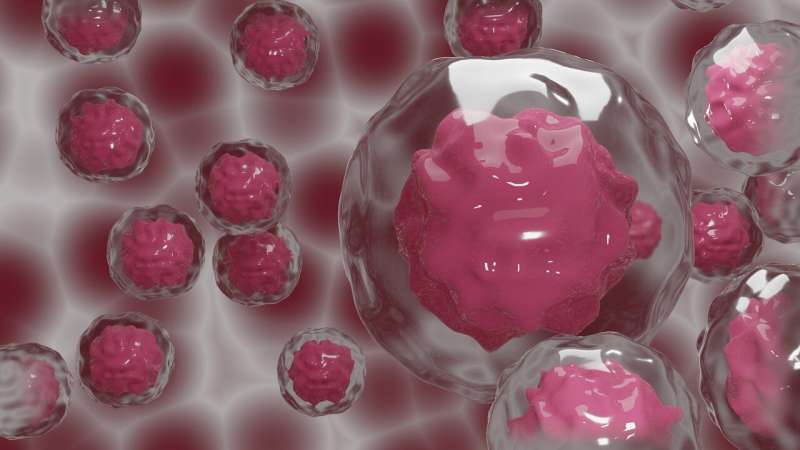Finding a new biomarker and drug target in breast cancer

After examining 398 proteins, a University of Houston College of Pharmacy researcher has found one that is an important biomarker predicting therapy outcome and a potential drug target in estrogen receptor-positive (ER+) breast cancer, which makes up approximately 80% of all breast cancers. The growth of ER+ breast cancer is stimulated by estrogen.
"We found that NPY1R, a well-known G protein-coupled receptor (GPCR) important in body weight regulation, serves as a predictor of endocrine sensitivity and of long-term outcomes in ER+ breast cancer, making it a potential drug target in estrogen receptor-positive breast cancer," said Meghana Trivedi, associate professor of pharmacy practice and translational research and pharmacology and director of clinical and translational research at the University of Houston College of Pharmacy. Her findings are published in Scientific Reports.
GPCRs represent the largest superfamily of cell-surface proteins and are highly 'druggable' targets. Nearly 30–50% of all Food and Drug Administration-approved drugs target various GPCRs and are often used to treat various chronic diseases due to their excellent safety profile. But, GPCRs have not been systematically explored as biomarkers or drug targets in breast cancer until now.
"We interrogated the expression and phosphorylation status of 398 non-sensory GPCRs using the landmark breast cancer proteogenomics and phosphoproteomic dataset from The Cancer Genome Atlas," said Trivedi. "We found NPY1R to be highly expressed in Luminal A subtype of breast cancer, which has overall favorable outcomes. However, its expression declined when the breast cancer cells developed resistance to endocrine therapy. We also reported that the inhibitory action of NPY on estradiol-stimulated growth of ER+ breast cancer cells was mediated by NPY1R. Our results demonstrated NPY1R expression as a predictor of endocrine sensitivity in ER+ breast cancer."
Endocrine therapies, which include tamoxifen, aromatase inhibitors, luteinizing hormone-releasing hormone receptor agonists, and fulvestrant are the standard of care treatment options for ER+ breast cancer. The use of endocrine therapies significantly improves long-term outcomes in early- and advanced-stages of the disease. However, intrinsic or acquired resistance occurs frequently with all endocrine therapies, resulting in disease relapse and poor survival.
"Therefore, the development of biomarkers to predict endocrine resistance and effective drug targets to overcome endocrine resistance is of utmost importance in ER+ breast cancer," said Trivedi.
Future studies targeting NPY1R will help further elucidate the role of NPY1R as a new drug target in ER+ breast cancer.
More information: Raksha Bhat et al, NPY1R exerts inhibitory action on estradiol-stimulated growth and predicts endocrine sensitivity and better survival in ER-positive breast cancer, Scientific Reports (2022). DOI: 10.1038/s41598-022-05949-7

















